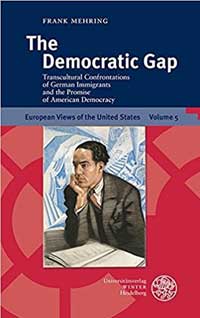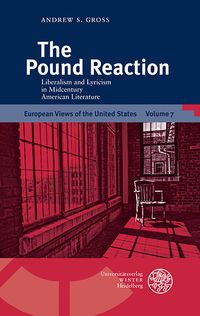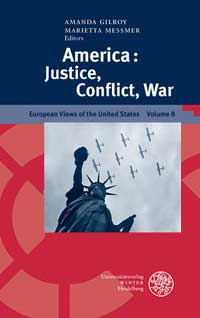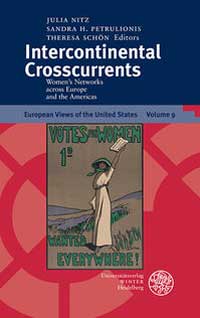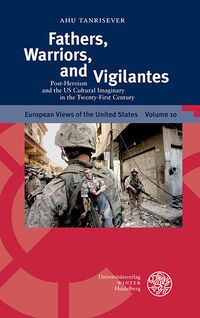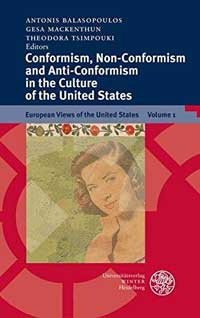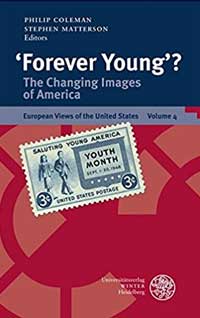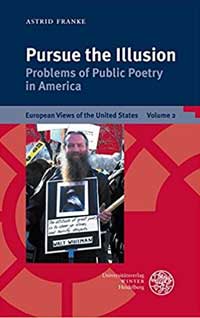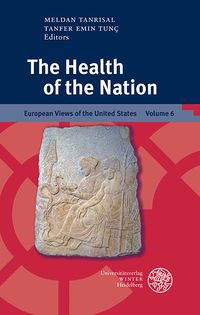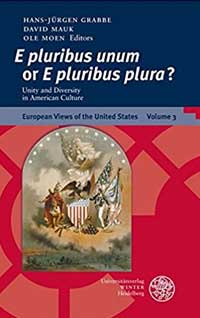EAAS Statement on Ukraine

26 February 2022
EAAS Statement on Ukraine
The EAAS is a pan-European association of twenty-one national and regional American Studies associations. We are committed to co-operation and intercommunication between scholars from all parts of Europe and across all academic disciplines. The principles of academic freedom, the freedom of expression, and the freedom of identity are core values of who we are as a community.
The outbreak of military conflict in Ukraine this week, coming after a prolonged period of tension and violence in the region in recent years, is utterly deplorable. We call on all parties to enter dialogue immediately in the search for a sustainable peace.
For those in Ukraine or seeking refuge who are at risk, The Austrian Academy of Sciences has created the following special programme: Joint Excellence in Science and Humanities to enable researchers from Ukraine to continue their work in Austria at the research institutes of the Academy as well as at other Austrian research institutions. https://www.oeaw.ac.at/fileadmin/NEWS/2022/PDF/Solidaritaetsadresse_EN.pdf.
In Czechia, individual universities are offering the following support services:
Charles University, Praha
- a dedicated telephone line offering daily psychological counselling services in several languages (Czech, Ukrainian, Russian and English)
- a daily information phone service in several languages (Czech, Ukrainian, Russian and English)
- allocate a minimum of 150 beds at Charles University dormitories for the accommodation of students or staff and their families from conflict-affected areas
- prepare a comprehensive system of support for persons associated with Charles University from conflict-affected areas
Further information available here: https://cuni.cz/UKEN-1540.html
Palacky University, Olomouc
- The International Relations Office is in constant contact with partner universities and is arranging the arrival of certain academics and students
- A list of specific aid offers has been created. The Volunteering Centre has a list of psychologists, linguists, lawyers, law and psychology students, and even accommodation listings. It is offering help with crisis intervention, and psychological support in person and in online form
- The UP Volunteering Centre is communicating with the Embassy of Ukraine in the Czech Republic
- The university is creating a scholarship fund for extraordinary support to Ukrainian students who are already studying at UP, or will be arriving as part of international aid
- UP Accommodation and Dining is preparing rooms for arriving families of UP students and academics
- University management is in intense discussions with the Czech Ministry of Education and together they are searching for other forms of aid
Further information is available here: upol.cz/en/ukraine
In France the College de France has opened a special call for assistance to our colleagues in Ukraine: Pause Program -- Solidarity with Ukraine which will finance the stay of a Ukrainian researcher, and his or her family if necessary, for a period of three months is offered to voluntary establishments. For more information: https://www.college-de-france.fr/site/programme-pause/PAUSE-Solidarite-Ukraine.htm
Germany provides short-term support up to 24 months, through the Philipp Schwartz Initiative (https://www.research-in-germany.org/en/research-funding/funding-programmes/avh-philipp-schwartz-initiative.html).
InSPIREurope offers Europe-wide support to researchers at risk due to discrimination, persecution, suffering or violence. It is hosted at Maynooth University, Ireland, and is co-ordinated by Scholars at Risk Europe. Further information can be found at: https://eua.eu/resources/project.
Since 2011 Norway has hosted Scholars at Risk across all of its universities and several higher education institutions. More information is available here: https://www.scholarsatrisk.org/sections/sar-norway/.
In Poland, the University of Warsaw, among others is supporting the following initiatives: a) securing accommodation for 500-1000 war immigrant students; and b) organizing long-term university funded scholarship options for graduate students and other visiting scholars. Further details will be published in due course.
In addition, the Polish Academy of Sciences has introduced a new tool supporting cooperation with Ukrainian researchers. Information available here: https://institution.pan.pl/index.php/755-visits-of-ukrainian-scientists-to-pas
In Switzerland, the SAR Swiss Section (SAR Switzerland) promotes the values, mission and activities of Scholars at Risk by hosting scholars at threat. More information is available here: https://www.scholarsatrisk.org/sections/sar-switzerland/.
In Turkey, a range of fellowships are available through Tübitak: https://www.tubitak.gov.tr/en/scholarship/postdoctoral/international-programmes/content-2221-fellowships-for-visiting-scientists-and-scientists-on-sabbatical-leave. Applications are received on a rolling basis, so colleagues can apply immediately. Our Turkish association representative will assist with the required invitation letter.
In the United Kingdom, CARA (Council for At-Risk Academics) was established in 1933 for “the relief of suffering and the defence of learning and science.” Fellowship information is available here: https://www.cara.ngo/what-we-do/a-lifeline-to-academics-at-risk/
We stand in support of the people of Ukraine.
The Board of the European Association for American Studies



